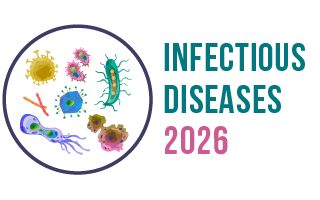4th International Conference on
Infectious Diseases
September 09-10, 2026 | Barcelona, Spain

Infectious Diseases 2026

University of Amsterdam, Netherlands The
Abstract:
The study assessed the maturity of country vaccine-preventable disease (VPD) surveillance systems in the African Region (AFR) and the investments required for their transformation into optimally functioning systems, delivering health and economic benefits. The maturity and performance of VPDs surveillance systems of countries in the AFR were graded using a four-level maturity grid developed from six functional components. The health-economic impact of optimizing country VPD surveillance systems to function at a minimum maturity level of three was modelled for the best and the worst investment case scenarios, using six high-burden and epidemic-prone VPDs. The maturity level of approximately 17% (8/47) of the countries fell in category one; 42.6% (20/47) in category two; 21.3% (10/47) in category three; and 19.1% (9/47) in category four. About 470 million US dollars is required as additional cost to optimize VPDs surveillance systems and laboratory networks in the AFR by 2030, with net health and economic benefit exceeding 21 billion US dollars over a period of 10 years. The health and economic benefits would accrue from morbidity and mortality averted, and mitigation of VPDs outbreak-related economic disruptions if surveillance is linked with timely response. On the contrary, holding back the additional investment could result in health and economic losses exceeding 22 billion US dollars. Countries should consider adopting a more granular approach in terms of costing and investment to implement tailored strategies in line with the regional roadmap. It is essential that the local government and stakeholders own these processes and outcomes.
Biography:
Michael Rockson Adjei is a global health expert (Medical Epidemiologist and Vaccinologist) affiliated to the University of Amsterdam and the World Health Organization. He has a PhD from the University of Amsterdam, Amsterdam, Netherlands. He has published 23 papers in peer-reviewed journal and is a reviewer for many reputable journals.
